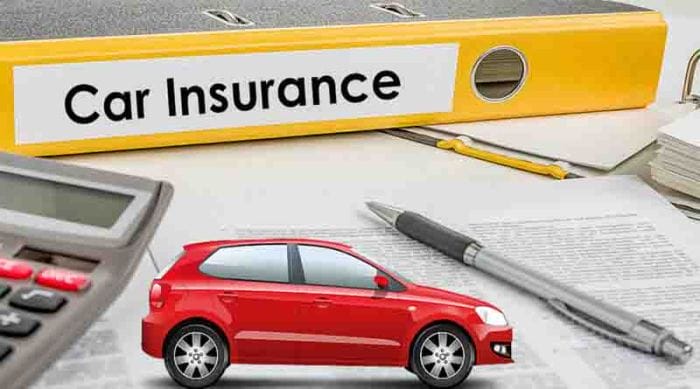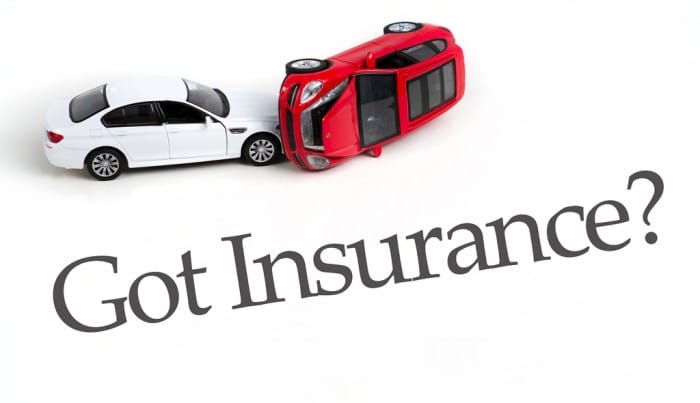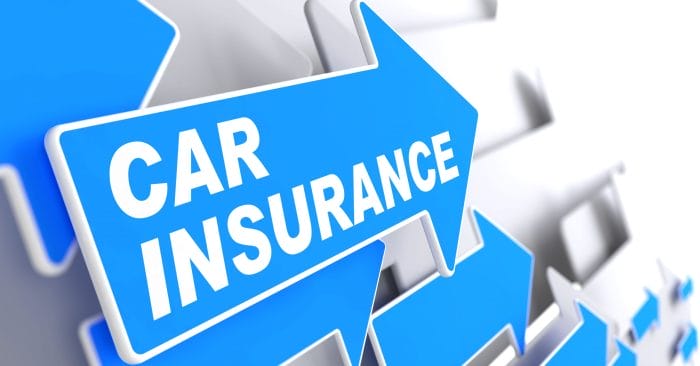In an era of rising costs, car insurance premiums can often feel like an unnecessary burden. However, with a little savvy and a few smart moves, you can significantly reduce your insurance costs without compromising coverage. Discover practical tips and strategies to lower your car insurance rates, from assessing your driving record to leveraging discounts and more.
Whether you’re a seasoned driver or a new policyholder, this comprehensive guide provides actionable insights to help you save money on your car insurance while maintaining the protection you need. Get ready to unlock the secrets of insurance savings and enjoy the peace of mind that comes with knowing you’re paying the right price for your coverage.
Assess Your Driving Record

Evaluating your driving record is a crucial step in understanding and potentially lowering your car insurance rates. A clean driving record, free of violations and accidents, can significantly impact your insurance premiums.
To obtain your driving record, you can request a copy from your local Department of Motor Vehicles (DMV) or utilize online services that provide access to this information. Once you have your record, carefully review it for any traffic violations, accidents, or other incidents that may have been recorded.
Maintain a Clean Driving Record
- Obey Traffic Laws: Adhere to speed limits, avoid reckless driving, and obey all traffic signals and signs. Maintaining a safe and responsible driving record is paramount.
- Avoid Distractions: Minimize distractions while driving, such as using mobile phones, eating, or engaging in other activities that divert your attention from the road.
- Enroll in Defensive Driving Courses: Consider taking defensive driving courses to enhance your driving skills and knowledge of traffic laws. These courses may also lead to discounts on your insurance premiums.
Compare Insurance Quotes

Comparing insurance quotes is essential to ensure you get the best coverage at a competitive price. It allows you to evaluate various policies, coverage options, and premiums offered by different insurance companies.
By comparing quotes, you can make informed decisions and potentially save money on your car insurance.
Research and Gather Quotes
- Online Comparison Tools: Utilize online insurance comparison websites or apps to gather quotes from multiple companies simultaneously.
- Contact Insurance Agents: Reach out to local insurance agents representing different companies to obtain personalized quotes based on your specific needs.
- Direct Company Websites: Visit the websites of individual insurance companies to compare their offerings and request quotes.
Evaluate Coverage Options and Premiums
- Coverage Comparison: Carefully compare the coverage limits, deductibles, and additional coverage options offered by each company.
- Premium Comparison: Analyze the premiums quoted by different companies for similar coverage levels.
- Consider Discounts: Inquire about available discounts, such as multi-policy, good driving, or safety features discounts, which can reduce your premium.
Negotiate for Better Rates
- Ask for Discounts: Negotiate with insurance companies to see if they can offer additional discounts or lower premiums based on your driving record, loyalty, or other factors.
- Bundle Policies: Consider bundling your car insurance with other policies, such as home or renters insurance, to potentially receive a lower rate.
- Loyalty Programs: Check if the insurance company offers loyalty programs or rewards for maintaining a good driving record or staying with the company for a certain period.
Increase Your Deductible

Adjusting your car insurance deductible is a strategy that can help you lower your insurance premiums. A deductible is the amount you pay out of pocket before your insurance coverage kicks in. By opting for a higher deductible, you’ll generally pay lower premiums.
However, it’s crucial to strike a balance between a manageable deductible and the potential financial burden it may pose in the event of a claim.
Choosing an Appropriate Deductible Amount
Selecting the right deductible amount requires careful consideration. Here are some factors to keep in mind:
- Your Financial Situation: Assess your financial stability and determine how much you can comfortably pay out of pocket in case of an accident or repair.
- Driving History: Consider your driving record. If you have a history of accidents or traffic violations, opting for a higher deductible may be more suitable.
- Vehicle Value: Take into account the value of your car. If you have an older vehicle with a lower value, a higher deductible may be more cost-effective.
- Insurance Company’s Deductible Options: Different insurance companies offer varying deductible options. Compare these options and choose the one that best aligns with your budget and risk tolerance.
Trade-Off Between Higher Deductibles and Lower Premiums
There’s an inverse relationship between deductibles and premiums. As you increase your deductible, your insurance premiums typically decrease. This is because the insurance company assumes less risk by requiring you to pay a larger portion of the repair costs. However, it’s essential to remember that a higher deductible means you’ll have to pay more out of pocket if you need to file a claim.
Ultimately, the decision of how much deductible to choose is a personal one. Weigh the potential savings on your premiums against the potential financial burden of a higher deductible in the event of a claim. Choose the deductible amount that strikes the right balance for your financial situation and risk tolerance.
Consider Usage-Based Insurance

Usage-based insurance (UBI) programs, also known as pay-as-you-drive insurance, offer a unique approach to auto insurance by tailoring premiums to individual driving habits. These programs utilize telematics devices installed in vehicles to collect data on driving behavior, such as mileage, acceleration, braking, and time of day driven.
Benefits of UBI Programs
UBI programs can provide several potential benefits for drivers:
- Personalized Premiums: UBI programs assess individual driving behavior, allowing for more accurate pricing of insurance premiums. Safer drivers may qualify for lower rates, promoting responsible driving habits.
- Feedback and Coaching: Many UBI programs offer feedback and coaching tools to help drivers improve their driving skills and habits. This can lead to safer driving practices and potentially lower insurance costs over time.
- Flexibility: UBI programs often offer flexible payment options, such as pay-per-mile or pay-as-you-go plans, which can be beneficial for drivers who don’t use their vehicles frequently.
Drawbacks of UBI Programs
However, UBI programs also have some potential drawbacks:
- Privacy Concerns: Some individuals may be concerned about the collection and use of personal driving data. UBI programs typically require the installation of a telematics device in the vehicle, which can track driving behavior.
- Potential for Higher Rates: Drivers who engage in risky or aggressive driving behaviors may face higher insurance premiums under UBI programs.
- Limited Availability: UBI programs are not widely available in all areas, and they may not be offered by all insurance companies.
Tips for Maximizing Savings with UBI
To maximize savings with UBI, consider the following tips:
- Drive Safely: Maintaining a safe driving record is crucial for obtaining the best rates under UBI programs. Avoid speeding, hard braking, and aggressive driving.
- Reduce Mileage: If possible, reduce your overall mileage by carpooling, using public transportation, or walking instead of driving.
- Optimize Driving Times: Try to avoid driving during peak traffic hours, as this can lead to higher insurance rates.
- Choose the Right UBI Program: Carefully compare different UBI programs to find one that best suits your driving habits and budget.
Maintain a Good Credit Score
Insurance companies often use credit scores as a factor in determining insurance rates. A good credit score can lead to lower premiums, while a poor credit score can result in higher rates.
There are a number of ways to improve your credit score. These include paying your bills on time, keeping your credit utilization low, and disputing any errors on your credit report.
How a Good Credit Score Can Lead to Lower Insurance Premiums
- Reduced Risk Assessment: Insurance companies view individuals with higher credit scores as being more responsible and less likely to file claims. This lower risk profile can lead to lower premiums.
- Financial Stability: A good credit score often indicates financial stability, which insurance companies may interpret as a lower risk of non-payment. This can also contribute to lower premiums.
- Loyalty Rewards: Some insurance companies offer loyalty programs that reward policyholders with good credit scores with discounts and other benefits.
Take Advantage of Discounts

Many insurance companies offer discounts to policyholders who meet certain criteria. These discounts can help you save money on your car insurance premiums.
Common Discounts Offered by Insurance Companies
Multi-car discount
If you insure more than one car with the same company, you may be eligible for a multi-car discount.
Multi-policy discount
If you have other insurance policies with the same company, such as homeowners or renters insurance, you may be eligible for a multi-policy discount.
Good driver discount
If you have a clean driving record, you may be eligible for a good driver discount.
Accident-free discount
If you have not been in an accident for a certain number of years, you may be eligible for an accident-free discount.
Anti-theft device discount
If your car is equipped with an anti-theft device, you may be eligible for an anti-theft device discount.
Student discount
If you are a student with good grades, you may be eligible for a student discount.
Military discount
If you are a member of the military, you may be eligible for a military discount.
Senior citizen discount
If you are a senior citizen, you may be eligible for a senior citizen discount.
How to Qualify for Discounts
To qualify for discounts, you typically need to meet certain criteria set by the insurance company. For example, to qualify for a good driver discount, you may need to have a clean driving record for a certain number of years.
To qualify for an accident-free discount, you may need to have not been in an accident for a certain number of years.
Combining Multiple Discounts
Combining multiple discounts can further reduce your insurance costs. For example, if you have a multi-car discount and a good driver discount, you may be able to save even more money on your car insurance premiums.
Consider Higher Liability Coverage

Adequate liability coverage is paramount in protecting yourself financially in case of an accident. It covers expenses related to property damage and bodily injuries caused to others. Determining the appropriate coverage limit is crucial. Higher liability coverage offers greater financial protection, but it may also lead to slightly higher insurance premiums.
Assessing Liability Coverage Needs
- Consider your assets and potential financial risks.
- Evaluate your driving habits and accident history.
- Review state minimum liability coverage requirements.
- Consult with your insurance agent for personalized advice.
Impact of Higher Liability Coverage on Insurance Rates
- Increasing liability coverage typically results in a moderate increase in insurance premiums.
- The exact impact varies depending on the insurance company, your driving record, and the amount of coverage you choose.
- Higher liability coverage can provide peace of mind and protect your assets in case of a severe accident.
Reduce Coverage for Older Vehicles
As your vehicle ages, its value depreciates, and maintaining comprehensive and collision coverage may no longer be cost-effective. Reducing coverage can save you money on your insurance premiums, but it’s important to consider your financial situation and the condition of your vehicle before making a decision.
Determining the Value of Your Older Vehicle
To determine if reducing coverage is right for you, it’s important to know the value of your vehicle. There are a few ways to do this:
- Use an online car valuation tool: Websites like Kelley Blue Book and Edmunds provide free tools that estimate the value of your vehicle based on its make, model, year, mileage, and condition.
- Get an appraisal from a qualified mechanic: A qualified mechanic can inspect your vehicle and provide an estimate of its value.
- Check recent sales prices for similar vehicles: You can find recent sales prices for similar vehicles in your area by searching online or contacting a local car dealership.
Potential Savings
The amount you can save by reducing coverage will vary depending on your vehicle’s value, your driving record, and the type of coverage you choose. However, you can expect to save anywhere from 15% to 50% on your annual insurance premiums.
Install Anti-Theft Devices

Installing anti-theft devices in your car can help deter theft and reduce the likelihood of a claim. This can lead to lower insurance premiums.
Common anti-theft devices include:
- Steering wheel locks: These devices prevent the steering wheel from being turned, making it difficult to drive the car.
- Brake locks: These devices prevent the brake pedal from being depressed, making it difficult to stop the car.
- Wheel clamps: These devices prevent the wheels from turning, making it impossible to drive the car.
- Alarm systems: These devices sound an alarm if the car is tampered with.
- GPS tracking devices: These devices allow you to track the location of your car if it is stolen.
To install an anti-theft device, you will need to follow the manufacturer’s instructions. In general, you will need to:
- Park your car in a safe place.
- Turn off the engine and remove the keys.
- Locate the appropriate mounting points on your car.
- Attach the anti-theft device to the mounting points.
- Test the device to make sure it is working properly.
By installing an anti-theft device, you can help protect your car from theft and reduce the likelihood of a claim. This can lead to lower insurance premiums.
Review Your Coverage Regularly
Keeping your car insurance coverage up-to-date is essential for ensuring adequate protection while avoiding overpaying for unnecessary coverage. Regular reviews allow you to adapt your policy to changing circumstances, ensuring optimal coverage at a reasonable cost.
To effectively review your coverage, consider the following:
Identify Changes in Your Circumstances
- Life Events: Marriage, birth of a child, or a new job may impact your coverage needs.
- Vehicle Usage: If your driving habits have changed, such as a shorter commute or increased usage for business, you may need to adjust your coverage.
- Vehicle Value: As your car ages, its value depreciates, potentially affecting the coverage amount you need.
- Legal Requirements: Insurance laws and regulations may change, requiring you to update your coverage accordingly.
Evaluate Your Current Coverage
- Coverage Limits: Review your liability limits, collision coverage, and comprehensive coverage to ensure they align with your current needs and assets.
- Deductible: Assess your deductible amount. A higher deductible can lower your premium, but it also means paying more out-of-pocket in the event of a claim.
- Endorsements: Examine any additional coverage, such as roadside assistance or rental car reimbursement, to determine if they are still necessary or cost-effective.
Make Adjustments as Needed
- Increase Coverage: If your circumstances have changed significantly, consider increasing your coverage limits to ensure adequate protection.
- Decrease Coverage: If your vehicle has depreciated or your driving habits have changed, you may be able to reduce your coverage and save money.
- Adjust Deductible: Consider raising your deductible to lower your premium, but ensure you can afford the higher out-of-pocket cost in case of a claim.
- Add or Remove Endorsements: Review any additional coverage and make changes as needed. For example, if you no longer need roadside assistance, you can remove it to reduce your premium.
Outcome Summary
As you embark on this journey to lower your car insurance costs, remember that every little bit counts. By implementing these strategies and staying vigilant about your driving habits, you can make a significant difference in your insurance premiums. Embrace the power of comparison, explore usage-based insurance options, and always be on the lookout for discounts.
With a proactive approach, you can take control of your insurance costs and enjoy the freedom of the open road without breaking the bank.
FAQs
Q: What is the impact of my driving record on my insurance rates?
A: A clean driving record, free of accidents and violations, can lead to lower insurance premiums. Conversely, a poor driving record with frequent violations or accidents can result in higher rates.
Q: How can I compare insurance quotes effectively?
A: To compare insurance quotes effectively, obtain quotes from multiple insurance companies, compare coverage options and premiums, and consider negotiating for better rates.
Q: What are the benefits of increasing my deductible?
A: Increasing your deductible can lower your insurance premiums. However, it’s important to choose an appropriate deductible amount that you can comfortably afford in case of an accident.
Q: How does usage-based insurance (UBI) work?
A: Usage-based insurance programs track your driving habits and adjust your premiums based on factors like mileage, driving behavior, and time of day. By driving safely and responsibly, you can potentially save money on your insurance.
Q: Why is it important to maintain a good credit score for car insurance?
A: A good credit score is often associated with lower insurance rates. Insurance companies may consider individuals with higher credit scores to be more responsible and less likely to file claims.



